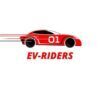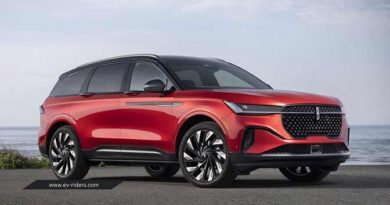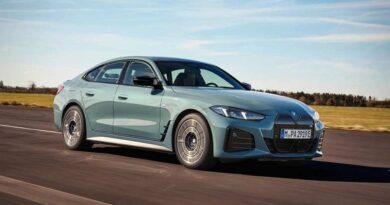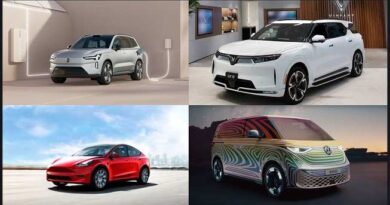Ford Issues Warning to EV Owners: Stop Using Tesla Charging Adapters
In a surprising move, Ford has urged its electric vehicle (EV) owners to stop using their Tesla Supercharger adapters immediately. This decision comes after the company identified a “potential issue” with the adapters, which could lead to slower charging speeds or, in some cases, damage to the charging port.
This alert affects Ford’s efforts to give its EV customers access to the Tesla Supercharger network—a significant step in improving the charging infrastructure for non-Tesla EVs. However, the recent discovery has made Ford take action to prevent further complications.
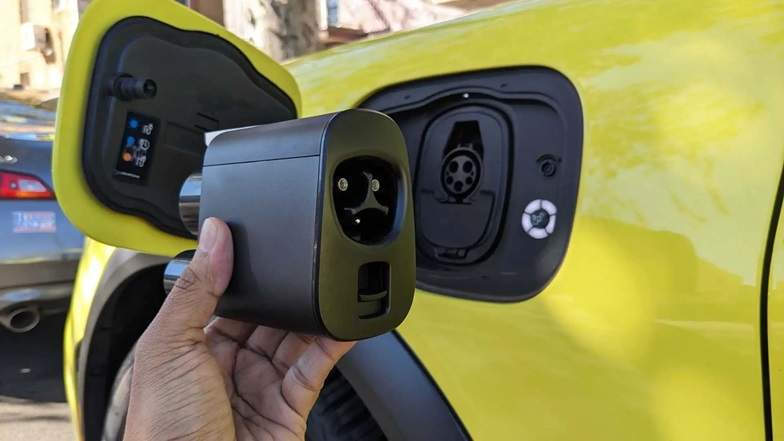
What’s the Issue with the Adapters?
Ford recently notified owners about a problem with the adapters used to connect its electric vehicles to Tesla’s North American Charging Standard (NACS) plugs. According to the bulletin, the adapter could cause reduced charging speeds or damage the EV’s charging port over time.
While Ford has not disclosed the exact technical details of the issue, they have stated that the problem is specific to a certain batch of adapters. Ford spokespersons have reassured customers that they will receive free replacement adapters soon to fix the issue.
| Key Details of Ford’s Charging Adapter Issue | Details |
|---|---|
| Issue Identified | Potential reduction in charging speeds and charging port damage |
| Affected Vehicles | Ford EVs using Tesla NACS adapters |
| Action Required | Stop using the adapter immediately |
| Replacement Timeline | Shipping replacement units by October 28 |
| Cost to Owners | Free of charge |
How Was the Problem Discovered?
The issue seems to have emerged relatively recently. Some Ford owners reported problems when using Tesla Superchargers with the provided adapter. For example, one Ford Mustang Mach-E owner encountered a flashing red light on the charging port and couldn’t connect to the Tesla charger through the app.
Ford is treating this situation as a customer service action rather than an official recall. Owners are being asked to stop using their current adapters and will be provided with replacements.
Ford’s Official Statement
Ford has taken a proactive approach to address the issue. According to a Ford spokesperson, the problem is related to adapters distributed earlier in the year. The company clarified that prolonged usage of these adapters might lead to reduced charging performance, urging owners to cease using them immediately.
Here’s what Ford said:
“Ford identified a potential issue with a batch of adapters sent earlier in the year where over time, continued usage may result in reduced charging speeds. Ford does not recommend using the identified adapter.”
Ford has also asked its customers to check and update their addresses through the FordPass app to ensure they receive their replacement adapters as soon as possible. The new units are expected to start shipping in late October, with customers receiving them for free.
How Are Other Automakers Responding?
Interestingly, Ford seems to be the only automaker facing this issue. Both General Motors (GM) and Rivian use Tesla’s NACS adapters for their EVs but have not reported any similar issues.
Rivian officials were quick to confirm that their drivers could continue using the adapters without any concerns:
“Rivian is not affected by this issue, and Rivian drivers may continue to use their NACS adapters normally at this time,” a spokesperson said.
The same goes for GM, which has not experienced any adapter-related problems.
What Should Ford Owners Do Next?
Ford EV owners need to take a few simple steps to ensure they’re ready to receive the new adapters:
- Stop using the adapter immediately. Continuing to use the affected adapter could damage the charging port or slow down charging speeds.
- Check and update your address in the FordPass app. Ford wants to make sure your replacement adapter reaches you without any issues. If your address needs updating, do so by October 24th.
- Wait for your replacement unit. Ford will begin shipping the replacement adapters starting October 28th.
Why This Matters for Ford’s Future EV Plans
Ford’s decision to partner with Tesla and offer NACS adapters was a strategic move to improve access to fast charging for its electric vehicle customers. Tesla’s Supercharger network is widely considered the best in the world, and opening it to other automakers has been a win for the entire EV industry.
However, this issue could slow down Ford’s progress in the short term. While the problem is limited to a specific batch of adapters, it highlights the challenges automakers face when developing new technologies and partnerships. Nonetheless, Ford’s quick response and proactive replacement plan will likely help ease customer concerns.
Stay Charged, Stay Safe
Ford’s decision to stop the use of these adapters is a crucial step in ensuring the reliability and safety of its EV charging infrastructure. While it may be frustrating for some owners, the company’s commitment to replacing the faulty adapters for free shows a proactive approach to handling the situation.
For now, Ford EV owners should hold off on using the Tesla Supercharger adapters until they receive their replacements. With the replacements set to arrive by late October, the inconvenience should be temporary.
In the meantime, other charging options remain available, and Ford is working to keep its customers on the road with as little disruption as possible.
